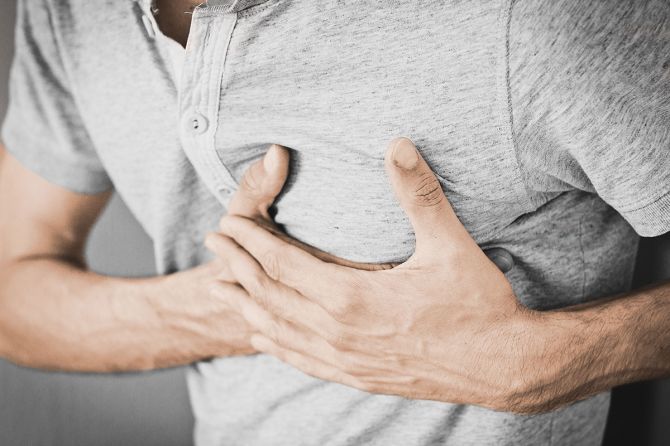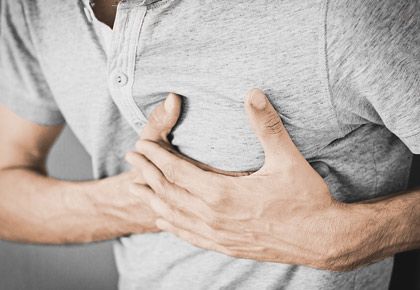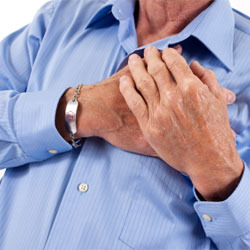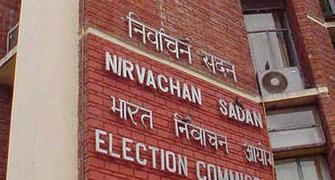Quick action is extremely important when one sees or feels the symptoms of chest pain.
There's no need to be embarrassed if the pain is simply due to indigestion, notes Dr Zainualabedin Hamdulay, chief cardio-thoracic surgeon, Masina Hospital Heart Institute.

A 55-year-old man felt acute pain and discomfort in his chest.
He was taken to the hospital but was declared dead on arrival. Medical investigation further revealed that he had suffered a heart attack a week earlier.
The doctors then questioned his family members, and it was discovered that he had been self-medicating for heartburn (acidity) and gastric problems for nearly a week.
He diagnosed a heart attack as a gastric problem and popped pills, believing that they would relieve him.
He did so without any medical advice, and as a consequence, the medicine adversely affected his heart condition, and he lost his life.
Many people in India follow the pattern of self-medication for cold, fever, headaches, heartburn, and acidity.
People take medicines based on their understanding and also advise the same to others without knowing the proper cause of the illness. Some of these decisions land them in big trouble.
This attitude to self-medication is of grave danger, especially if, in the case of a heart attack, people assume and treat it like gas or acidity.
In the case of a heart attack, the right treatment at the right time is of utmost importance.
Identifying chest pain
A burning sensation in the chest area is a common sign or symptom of gastroesophageal reflux disease (GERD), often called a gastric problem or acidity in common parlance.
Here, acidic bubbles, which gather in the stomach, move up into the oesophagus (the tube which connects the stomach to the throat), causing a pain and burning sensation just behind the breastbone.
The same can be felt in the case of a heart attack. But it is not that easy to tell the difference.
Chest pain caused by insufficient blood flow to the heart (angina) or a heart attack is often described as a feeling of tightness, pressure, or burning sensation.
Many times, people misinterpret it as gastroesophageal reflux disease.
axInaccurate or half-knowledge from the Internet regarding the signs and symptoms of a heart attack or chest pain also contributes to this misinformation.
If you burp or pass the gas and the pain fades and finally goes away, it means you could just be experiencing stomach pain or heartburn.
If the pain persists and you have shortness of breath or nausea, it could be a heart-related issue.
Often, gastric problems, heartburn, chest pain due to indigestion, and heart attacks have common symptoms.
What to do in such a case?
Should you simply take an antacid, or call a doctor?
It is of great importance to know the difference between gastric pain and chest pain due to heart attack so you treat it immediately.
Heartburn symptoms due to gastroesophageal reflux disease
Heartburn is mild discomfort or pain caused by stomach acid moving up through the esophagus: It can happen soon after eating.
It may be caused due to a burning sensation, which moves up from the stomach into the chest.
It can happen if one bends over or is lying down. It may awaken a person from sleep.
A person may taste sourness in their mouth.
A person may experience the taste of something recently eaten in his mouth; this is not the same as vomiting or throwing up, but s/he may experience an acid taste in his mouth or some food.
Non-cardiac chest pain
Most non-cardiac chest pain is caused by an esophageal problem, also known as acid reflux, which accounts for 22 to 66 percent of all non-cardiac chest pain.
People with conditions such as this have a lot of pain even when there is a small pressure change in the oesophagus or even when a small amount of stomach acid bubbles up into the chest.
Muscle spasms in the oesophagus may also cause chest pain resembling a heart attack.
Symptoms of non-cardiac chest pain
The patient feels squeezing pain behind the breastbone.
Some people may also feel the pain in the neck, left arm, or back. The pain may last for a few minutes or for hours.
Signs of chest pain due to a heart attack
- Discomfort in the chest area along with a burning sensation, heaviness, aching, squeezing pain, or pressure.
- Discomfort or heavy pain in the left shoulder, neck, jaw, or throat, back, or stomach.
- Shortness of breath, which may be accompanied by or without chest discomfort.
- Sudden fatigue and tiredness, cold sweat or perspiration.
- Nausea or vomiting or light-headedness.
- Weakness or unexplained anxiety and heart palpitations.
- Increased heart rate.
What if a person can't differentiate between non cardiac and heart pain?
If one is not sure, seeking immediate medical help is desirable.
While in some cases, heart attacks are very quick and intense, many start slowly with mild pain or aches.
It's important that a person understands and listens to their body language.
Quick action is extremely important when one sees or feels the symptoms of chest pain. There's no need to be embarrassed if the pain is simply due to indigestion.
It's always better to get timely medical care than to wait until it's too late.
Non-cardiac chest pain can be a scary event as it may feel like a cardiac problem. It is usually treated successfully once the doctor identifies the cause of the pain.
With the right and timely treatment, the symptoms of gastric problems go away for most patients. But it's important to diagnose it earlier and treat accordingly.










